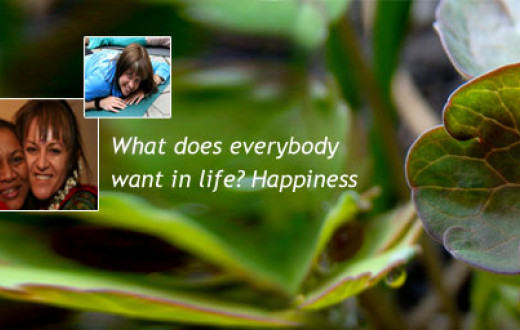Bangalore, India

(Below is a continuation of the post Train The Mind Again And Again)
Lord Krishna gave a warning every time a wrong deed was done.
In fact, despite warning him the 99th time also, when Shishupala did not stop, Lord Krishna had to take that step of beheading him. It is not that Lord Krishna forgave him without making him realize his mistake. No, He forgave Shishupala each time only after making him realize the wrong he had done.
What is the use of forgiving someone without making them realize what mistake they have done? They will never realize otherwise. So every time Shishupala did a wrong deed, Lord Krishna would make him realize what wrong he had done, and only then forgave him.
See, mistakes do happen. But what we often do is go on repenting, 'Oh! I made such a mistake', and we feel guilty. Or we pretend as if the mistake has not happened at all, and strive to prove that it is not a mistake at all. Both these approaches harm a person.
So one is the denial mode, which is to deny that you have made a mistake. The other mode is that of getting stuck in guilt and shame about the mistake; so much that you fall ill because of it. One should adopt the middle path between these two.
So when you have made a mistake, do not go on repenting over and over again about it and become miserable. At the same time, do not deny that you made a mistake. The middle path here is to realize that you have made a mistake and that you have learnt something from it. And move on!
So by following the middle path, you accept that you made a mistake but at the same time you do not get stuck in the guilt of it. You learn from it and move ahead.
You should remember to adopt the middle path for yourself and for others too.
If someone else makes a mistake, then repeatedly scolding them and nagging them so that they realize their mistake will only ruin your relationship with them.
Just think about this. Suppose someone continuously keeps nagging you for a mistake you have made, would you like to be with them? You would feel like moving away from such a person who constantly keeps reminding you of your mistake.
No one commits a mistake deliberately. Mistakes simply happen because of a lack of awareness. Once awareness dawns within you, then you should simply realize that you made a mistake out of ignorance, and by realizing this you come out of the mistake.
Once you have that awareness, you become innocent and free once again. The moment you gain awareness, you also become aware of your innocence.
So just move ahead knowing that you are innocent, rather than chewing on your mistake. It is important to have complete faith in your innocence.
At the same time, pointing out someone else’s mistakes all the time and making them feel guilty about it is also no good. Then they will go on distancing themselves from you. So do not do this.
Making others realize their mistakes without making them feel guilty is also a skill. It is an art. You have to skilfully make the other person realize their mistake without making them feel guilty, and then pat them on their back encouragingly and say, 'Come on, move ahead. It is alright. Mistakes happen. I have forgotten it, so you also forget about it'.
Do not let anyone stay stuck in guilt or continue feeling like a culprit. A person who is made to feel like a culprit all the time will only go on committing more and more wrong deeds. He will never improve his ways. So to save the mind, you have to first save it from this culprit consciousness. Do you get what I am saying?
Having this culprit consciousness means to continuously think, 'I am a culprit. I did such a wicked deed'. This feeling of guilt consumes a person completely and does not let him progress on the spiritual path.
The first step towards spirituality is to free oneself from this guilt consciousness.
The next step towards spirituality is to be free from ego. Often people boast that they did so-and-so great thing. 'I am the greatest', this is also not conducive to spiritual progress. You need to become Akinchan as well (meaning: to feel ‘I am nothing’).
Now this does not mean you keep thinking that I should become nothing. Do not get caught up in a web of words. If you get caught in words then you end up creating a totally different web of thoughts and impressions. This is why I say that you should just be simple and natural. When you are simple and natural, then all problems and entanglements get resolved effortlessly by themselves.
I feel there is some great secret behind narrating this. There must be some meaning behind the name of every conch shell mentioned in the verses. People who are good at research should put their minds to this and find out what the secret is.
The names of all the conches mentioned are so beautiful. There is a verse in the Gita:
'Panchajanyam Hrishikesho devadattam dhananjayah. Paundram dadhmau maha-shankham bhima-karma vrkodarah'. (1.15)
These verses were not simply written just like that. There are qualities associated with every name. Every name is special in some way.
For example, the word 'Parna' means 'A Leaf' in Sanskrit. But do you know what it really means? It means that which absorbs the radiant light of the sun within itself.
We all know that leaves perform the function of photosynthesis. A leaf absorbs the sunlight and the moisture from the environment to generate chlorophyll. This meaning is contained so beautifully in its name.
In the same way, what does 'Aparna' mean (one of the sacred names of the Mother Divine)? It means that which does not absorb the sunlight; it means that which does not take anything and remains untouched by everything.
Suparna means that which shines or is able to fly. The Garuda (revered as the mount of Lord Vishnu) is referred to as Suparna because it can fly. It uses its feathers to push the air below and fly upwards in the sky. So in this way, every word implicitly contains a practical meaning in itself. This is the specialty of Sanskrit.
There is a verse in Sanskrit, 'Raviryartevantyam pratidinam-uparasya narabhasyah. Kriyasiddhir bhavati Sattve-mahatam nopakarane'.
(From the Raghuvamsa by Sri Kalidasa)
It means that one cannot achieve desires by upakarana alone (Upakarana implies the means or medium used to accomplish one’s desires). By enhancing one’s Sattva (positivity) one is able to accomplish what one wants. But this does not mean that one can achieve something without using any material means or medium.
You can understand it like this. You can bake bread on the stove only when there is fire (here referring to Sattva). If there is no fire, the bread will remain uncooked. But to make bread, you also need wheat flour, water and a baking pan (these being the materials). Only then can you prepare the dough. So, just having dough, or just having fire alone cannot bake bread.
If you just keep saying, 'I am very positive, I am very Sattvik', and think that everything will be accomplished by that alone, then that is not going to happen. You definitely need the tools to accomplish what you want.
There also comes a stage in which, the moment a thought or a wish arises in the mind, it gets materialized and fulfilled instantly. This is called Naishkarma Siddhi and it happens in very rare individuals. It means having all your wants and desires fulfilled even before the thought arises in the mind. And who gains such ability? One who is totally content from within and free from all actions and their attachments, attains Naishkarma Siddhi.
It also happens to a devotee who is so totally soaked in devotion and desires nothing at all. Such a devotee too attains Naishkarma Siddhi. But for that they have to strive for a long time in their life to attain such a state. Once a person attains such a state, then whatever he thinks immediately starts happening.
Such a Brahmajnani (one who has realized the Brahman or the Supreme Consciousness) effortlessly acquires Naishkarma Siddhi. But a Brahmajnani also attains this Siddhi over due course of time. When the time is right and the person has become ripe, then he attains Naishkarma Siddhi.
How many of you have experienced this that whatever you think of starts happening? Yes, this is called Naishkarma Siddhi. Everyone surely gets a glimpse of this in their life, but it may take some time to attain it completely.
(Note: The discourse was given in Hindi. Above is a translation of the original talk.)

























